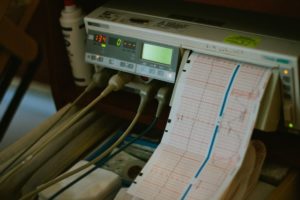
At a cancer-treatment forum held recently at the Crowne Plaza in Quezon City, hematologist Dr. Daryl Tan, the Director of Research at the Raffles Hospital in Singapore, narrated a bleak tale: a 25-year-old woman, in the prime of her life, was losing her battle against a blood cancer called Hodgkin lymphoma.
“It’s a common cancer in her age group,” said Dr. Tan, “but most patients—up to 80%—usually respond very well to chemotherapy. Unfortunately for this patient, she was one of the 20% who do not respond well. After she completed chemotherapy, she relapsed. Her cancer came back.”
Having experienced little success with chemotherapy, the patient received the standard next line of treatment in Singapore for her condition: stem cell transplant.
The treatment, however, was unsuccessful. The patient’s disease continued to progress, and a huge tumor grew in her chest.
Dr. Tan dubs this scenario a “medical futility,” where a patient degenerates despite medical efforts. At this juncture, Dr. Tan said that specialists would normally shift to a different strategy where the aim is to let the patient go peacefully.
Fortunately at that time, a new type of treatment for Hodgkin lymphoma was approved in Singapore. It was called immunotherapy – and in this particular situation, it was applied through an immune checkpoint blocker called pembrolizumab. This treatment was prescribed to the patient at a time when there were almost no options.
“After two months, her tumor resolved. Since then, she has been continuously receiving immunotherapy and has been experiencing its medical benefits for one-and-a-half years. Now, we are happy to say she is back at work,” Dr. Tan reported.
What is Hodgkin lymphoma?
Hodgkin lymphoma is a cancer of the lymphocyte, one of the five main types of white blood cells. The cancer is most common among adults in their twenties and thirties, and unlike lung cancer, which has been very clearly linked to smoking, its precise cause is still unknown.
In its early stages, Hodgkin lymphoma may show no symptoms, but when it does, they are usually in the form of swollen lymph nodes. “Patients usually come to us because they feel a lump in their neck, and then we send patient for lab tests, and that’s when we find the cancer,” Dr. Tan said.
Before immunotherapy was introduced, the conventional method of treating Hodgkin lymphoma was chemotherapy which uses drugs that are toxic to cancer cells. However, these drugs can also affect healthy cells, elevating the risk of side effects such as hair loss and diarrhea.
Immunotherapy, on the other hand, helps the body’s own immune system and strengthens it to fight the cancer.
“We found that in Hodgkin lymphoma, the body is unable to fight the cancer because the cancer produces a protein that suppresses the patient’s immune cells and prevents them from fighting the cancer. What immunotherapy does is it breaks this interaction between that protein and the immune cells, so now the immune system is again able to engage and attack the cancer cells,” Dr. Tan says.
A new treatment option
Although Pembrolizumab has only been approved for the treatment of Hodgkin lymphoma less than two years ago, it has already been around for more than four years and has been earlier approved for the treatment of lung cancer and melanoma.
“We found, though, that people with Hodgkin lymphoma respond even better to immunotherapy than patients with melanoma or lung cancer,” Dr. Tan shares.
The current recommendation is for patients to continue receiving treatment until they and their doctor see that the cancer has not progressed for two years. Depending on the cancer though, some doctors have reported stopping at six doses and finding that the effects of the drug endure. In other words, the cancer does not come back.
Tan elaborates, “Studies on immunotherapy drugs have shown success rates of over 70% where tumors become smaller, and some patients have complete remission, meaning there is no evidence of the tumor left in the body. For patients like mine, where we have run out of options, a drug like this that is able to give a 70% response, is a most welcome major advancement in medicine.”
In the Philippines, immunotherapy is already approved for the treatment of non-small cell lung cancer. Efforts to bring knowledge of it to the public, as well as to push for increased access to the treatment, have been steadily strengthened by concerned groups and organizations, which include members of the medical community and advocate patient groups.
For example, immunotherapy advocates, such as the “Hope From Within” coalition, a multi-stakeholder collaboration that elevates the fight against cancer, is working on its new game plan that would include promoting awareness, prevention, screening, and immunotherapy treatment for Hodgkin lymphoma, advanced melanoma, and head and neck cancers.
Members of this coalition include the Department of Health, Philippine Society of Oncologists, Philippine Society of Medical Oncology, Philippine Alliance of Patient Organizations, and healthcare company MSD in the Philippines.















